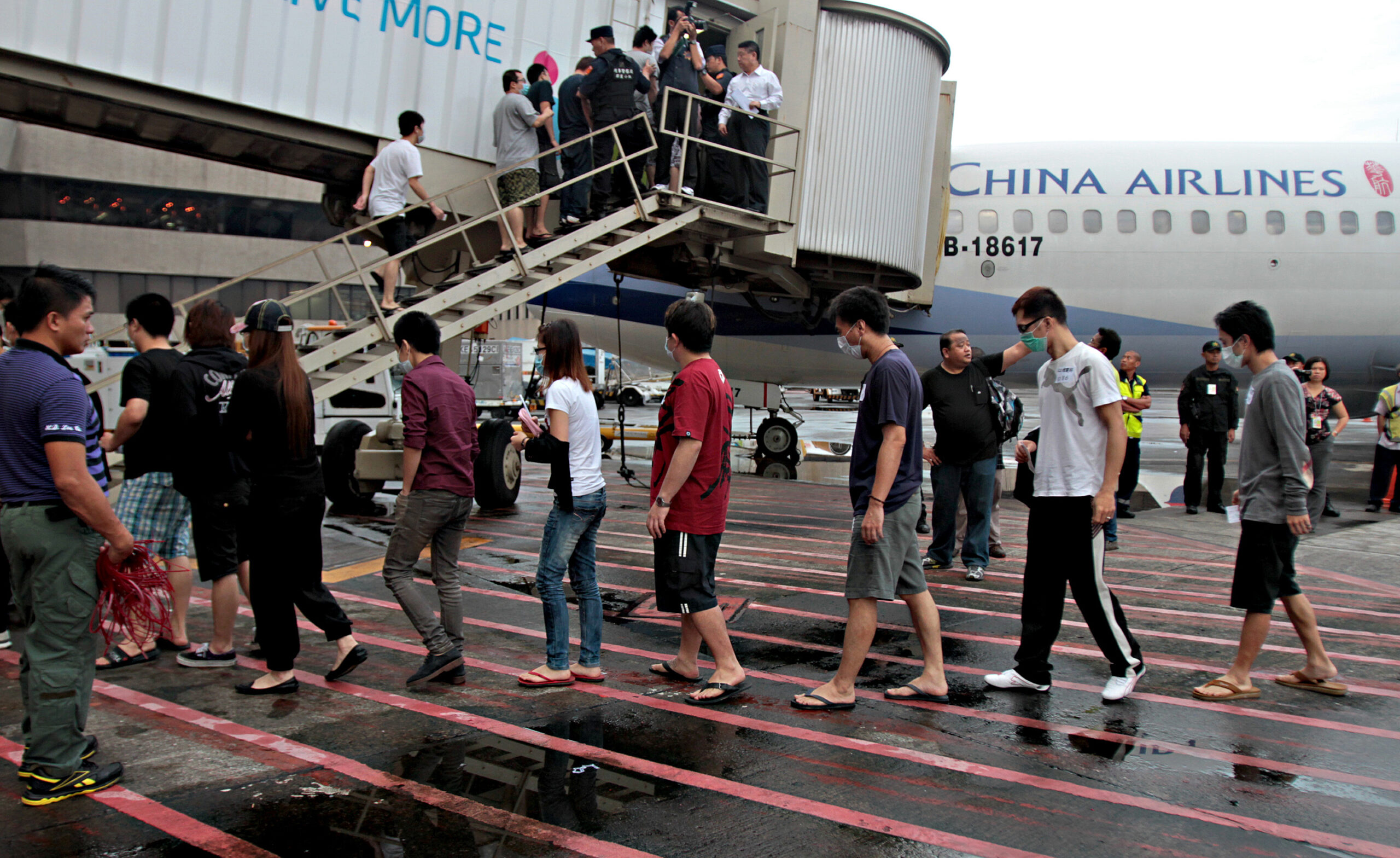When another user touches you in the Metaverse, the hand controllers of the VR headset vibrate. During acts of sexual violence, the physical experience is disorienting, unpleasant, and leaves victims vulnerable in a place they often go to escape the real world.
This was the experience of one 21-year-old researcher from the non-profit group SumOfUs, when she ventured into a metaverse digital room called Horizon Worlds in May. After an hour, she was sexually harassed and then raped.
“It happened so fast I kind of disassociated,” the researcher described, in a recent report titled ‘Metaverse: another cesspool of toxic content.’ “One part of my brain was like what the fuck is happening, the other part was like this isn’t a real body, and another part was like, this is important research.”
Mark Zuckerberg, founder of Facebook – now known by its new brand name Meta – reiterated plans in October to invest billions into metaverse technology, a virtual reality space in which users can interact with a computer-generated online environment, despite falling share prices and investor concerns. Many tech companies and internet servers are already expanding their efforts on this new frontier.
But, safety concerns for users should not get lost in the excitement.
Campaigners are advocating for a safer online virtual space, especially for women. Although statistics are currently limited in the early stages of the metaverse, researchers and users have reported cases of sexual violence, graphic images, and hate speech in the apps accessed through the Oculus headset, a VR device designed for ‘next level gaming.’Without urgent action, these abuses and harassment will only get worse.
At present, the characters and environments in the metaverse are simple and unsophisticated. But in time, as more money is invested, these worlds will become more and more complicated. Avatars will become more defined and lifelike, and the background environments will become more detailed with vivid colours, textures and more realistic three-dimensional characteristics.
This new metaverse will continue bringing together digital currency, marketplace ad digital commerce, digital assets, entertainment and events, online shopping and workplaces, and new forms of social media, which already exist in early gaming and adult metaverse applications.
As these worlds are developed by Meta, Microsoft and other gaming platforms, metaverse-based commerce and business will expand. Players are able to buy weapons, armour and even property within these games with either online currencies or, in some cases, real money.

While future metaverse worlds will offer opportunities for us all to explore new places and interact with new people, it will also serve as a platform by which individuals with malicious intent could possibly exploit and harass others. Three issues that will be faced in these worlds will include physical and emotional harassment, scamming and identity theft, and recruitment for human trafficking.
In the real world, unwanted physical and sexual advances can go from uncomfortable to traumatising for women of all ages. This transition is further accelerated in the digital realm, often with less risk of accountability.
A victim who entered one of these worlds described how she was surrounded by a group of avatars that groped at her and reached for her chest and groin area. They also used inappropriate sexual and sexist language. She said she left the experience feeling totally violated. Chanelle Siggens, a gamer, was approached by a player in Meta-owned Population: One virtual reality domain, who “simulated groping and ejaculating onto her avatar.” Mari DeGrazia, a user and associate managing director at Kroll of Cyber Risk practice ,witnessed harassment more than three times per week and “another player groped her avatar’s chest.”
Because the metaverse offers attackers a place to harass women anonymously, the need for safeguards from this is being explored. Facebook’s platform, Meta, has created a “safe zone,” which will offer a protective bubble that users can activate when they feel uncomfortable or threatened. Within this space, no one can interact with them. However, campaigners fear it’s not enough and that Meta has to put in real and effective safeguards in moderating content.
Scamming and identity theft is also a major threat in the metaverse. Brandon, a 26-year-old American doctor, first fell victim to fraud when he was eight years old and living in Bangkok. During a session on multiplayer online role-playing game Runescape, that allows users to explore the fantasy world of Gielinor, giving users the opportunity to embark on quests, train in a variety of skills, and engage with this game’s economy across its virtual marketplace by using gold coins that could be earned and spent in this game to buy weapons, tools and other items. A scammer tricked him into giving up his password, which resulted in him losing access to his account and all of his money.
While the gold coins held no value in the real world, the incident left the young boy feeling exposed and psychologically shaken. To remedy this injustice, he worked with the game’s moderators to review the mechanism by which the account was stolen, refund the lost currency that had been used by the scammer to purchase items, and restore access to his account.
This example shows that, even in a virtual world, systems and procedures to seek justice can prevail.
“After all these years, it still feels like a real violation of trust. I was shocked that theft and exploitation was so rampant in this virtual world. I’m much more careful when I do anything online now,” Brandon said.
It is the recruitment of people for modern slavery and recent cases linked to trafficking rings in Cambodia, Myanmar and Thailand with tentacles reaching young and highly educated victims in Hong Kong and Taiwan and beyond suggests it is rampant in Southeast Asia. As social networking platforms move into the metaverse, people in these worlds will pose as legitimate job recruiters or a love interest offering the possibility of a relationship or marriage. After establishing a false sense of trust, these traffickers lure their unsuspecting victims into prostitution or forced labour.
The Metaverse is an extension of social networking which has already been identified as a mechanism for luring people into forced labour and modern slavery in Southeast Asia. Campaigners are highly concerned that there will be increasingly more victims of exploitative recruitment on the metaverse.

Xiao He from China called the non-profit organisation the Mekong Club in 2021, with an all too familiar story. Her 17-year-old daughter had joined an online chat platform to soothe her daily struggles of feeling insecure and unattractive. One day, a young man approached her to be friends. Over time, they became close. He repeatedly told her how beautiful she was. He also exclaimed that he had fallen in love with her.
In reality, her 18-year-old boyfriend was part of an online scam ring and worked closely with a middle-aged trafficker to groom and exploit young women. One day, he asked if they could meet for an ice cream. When she arrived at the appointed place, the boy seen in the photos was there. He was part of the trafficking plot. They were in love! He picked her up from the train station and drove to a small café. They then took a ride into the countryside.
Without knowing what happened, she woke up in a hotel room. She had been given a strong sedative that completely knocked her out for many hours. The boy approached her with explicit photos of them in bed, naked. He told her aggressively that if she didn’t do as she was told, he’d share the photos with her school and her family. He told her she would have to sleep with men now and then for this to be avoided.
This scenario happens to many young girls in Southeast Asia who are taken across borders and all over the world. While many of these victims do what they are told and agree to enter into prostitution to avoid losing face, in this case, the girl went to her parents. They managed to identify the teenager and the man who was supporting him.
Without safeguards in place, predators will be able to do similar things in the metaverse.
As the metaverse grows and expands with more and more companies joining in to build online environments, non-government organisations (NGOs) and academics who specialise in ethics need to be involved in this process. This will ensure that this new reality doesn’t continue to go off in a direction that ignores morals, ethics and human rights. In addition, the metaverse could offer a good place to allow NGOs to get their messages across to the people who will frequent these virtual worlds by setting up online offices and billboards that advertise a supportive message.
Global organisations such as the Mekong Club, that works with the private sector to eliminate slavery in supply chains, is already exploring a role we can play in the metaverse development process. These organisations can work with the metaverse developers at major tech companies to put in place additional safeguards to prevent vulnerable individuals from being targeted by traffickers with false promises of work, or from being groomed into exploitative situations. This might include encouraging new participants to learn about potential risks of human trafficking with a required e-learning recruitment orientation. As part of this initiation process, the content might also offer warnings to users, outlining the penalties or punishments that will occur for those who partake in these activities.
For these worlds to be safe, online police might also be needed to circulate and detect human-rights violations and confront the abusers in real time.
Whatever processes and procedures are put in place, they should be monitored and evaluated on a regular basis to see if they need to be updated and expanded as these virtual worlds unfold.
The metaverse concept is exploding and it’s clear that toxic and even illegal activity in these worlds are endemic. As this process continues to unfold, NGOs and civil society groups must be able to offer their supportive services to make sure these worlds are safe and ethical for all. We must not blindly embrace all technology but urgently ensure that people are safe from harm and exploitation in the virtual worlds.


